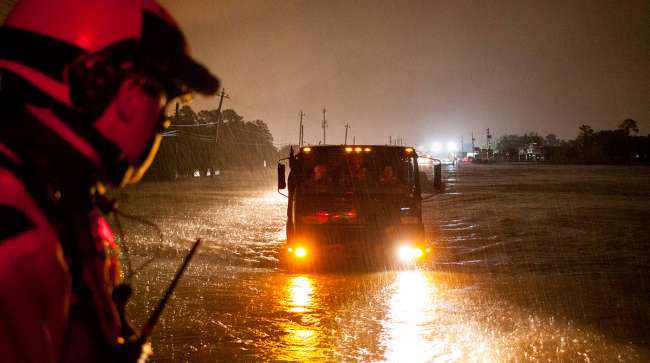Staff Reporter
Environmental Services Companies File Joint HOS Exemption Request

Four environmental services companies have submitted a joint application for exemption from hours-of-service regulations to the Federal Motor Carrier Safety Administration.
The companies — Hepaco, Heritage Environmental Services, Lewis Environmental Inc. and Moran Environmental Recovery — specialize in a variety of emergency response, waste disposal and habitat restoration activities.
According to a document scheduled for publication in the Federal Register on Aug. 9, these companies have applied for a five-year exemption from HOS regulations for drivers involved in providing direct assistance in environmental emergencies. In the document, the applicants define an environmental emergency as a “sudden threat to the public health or the well-being of the environment, arising from the release or potential release of oil, radioactive materials or hazardous chemicals into the air, land or water.”
The companies have a combined 758 commercial driver license holders, according to the Federal Register document, and oversee 840 commercial motor vehicles. They all are members of the Spill Control Association of America, which works with private sector companies and public agencies during safety crises or environmental emergencies.
“The applicants’ employees are hybrid driver/operator/technicians, so the total on-duty time can be a challenge, especially after hours,” the Federal Register document states. “Other job duties include industrial maintenance, spill response, sampling, lab packing and waste management. With the current driver shortage, obtaining drivers with these additional skills and experience is becoming more problematic.”
American Trucking Associations last year reported the shortage at more than 50,000 drivers.
Specifically, the companies are seeking exemption from the 14-hour rule. HOS laws dictate when and how long truck drivers can operate. The 14-hour driving window says drivers are allowed a period of 14 consecutive hours in which to drive up to 11 hours after being off-duty for 10 or more consecutive hours.
HOS Request by Transport Topics on Scribd
The applicants’ request comes with a few conditions:
• A driver’s on-duty period would not exceed 4½ additional hours for an initial emergency response.
• Any driver who exceeds the 14-hour period would in no case exceed a total of eight hours’ drive time.
• Drivers would not exceed 70 hours on duty in eight days.
• Drivers would be required to take 10 hours off-duty subsequent to the duty day.
All activities would be subject to the electronic logging device rule.
“According to the applicants, there would be a significant challenge in responding to environmental emergencies if the exemption was not granted. The initial response hours are the most critical in an environmental emergency, and the ability to quickly respond is vital,” the document states. “They believe that a tightly managed exemption actually provides a risk-averse situation by discouraging potentially unmanaged risk-taking.”
These companies are not alone in their request to FMCSA. In mid-July, Waste Management Holdings Inc. submitted a request for a five-year exemption from certain HOS rules.
Many trucking groups also have sought exemption from the electronic logging device mandate. In early April, Wilcox Truck Line requested a five-year exemption from ELD use when transporting materials for the Idaho National Laboratory. In March, the Truck Renting and Leasing Association requested an exemption from the mandate through the end of the year for property-carrying trucks rented for 30 days or fewer.
FMCSA will take public comment on the joint application through Sept. 8. The agency will then review public comments and conduct safety analyses to determine if granting the exemption would result in a level of safety equivalent to or greater than the level that would be achieved by compliance with the regulation.


